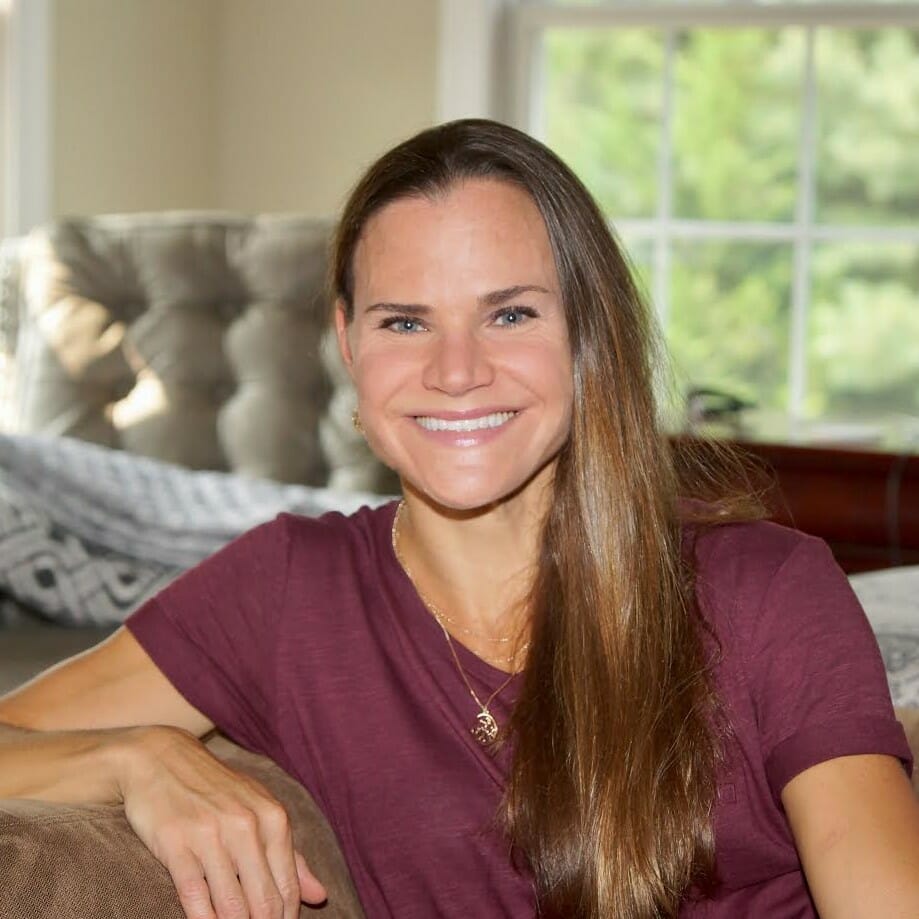“I’m just not sure I really believe,” she admitted. “I’ve been going to church my entire life, but I’ve never had a ‘personal encounter’ with God. I don’t understand why certain things happen. I want to believe, but I just don’t know…”
At the time, I wasn’t sure exactly what to say to my friend, so I shared a bit about my personal experience with “believing in order to see” and the Bible verse God laid on my heart in that moment:
“Faith is confidence in what we hope for and assurance about what we do not see.” Hebrews 11:1
I’ve thought a lot about this conversation since then. I knew she wasn’t the only one who felt that way because I struggled for many years with the same doubts myself. To this day, I still have a thousand unanswered questions, but one thing has changed.
Despite all the unanswered questions, I’ve chosen to live by faith, not by sight, and in doing so, I’ve become able to truly witness how patient, just, loving, and amazing our God really is.
Since sharing my testimony, I’ve had many women openly share their personal struggles with living by faith – with believing without “proof,” trusting in a God that “allows so much evil to exist,” and accepting the “far-fetched stories” of the Bible as truth. This post was inspired by these conversations and testimonies, coupled with a nudge from God to put it into writing, with hope that these words may resonate with at least one other person.
Maybe, just maybe, that person is you…
Whether you’ve been a believer for a long time but are struggling to really find God in your everyday life or whether you’re not quite sure if you even believe at all, this post is for you.
I can’t assume that I know the specific roadblocks that stand between you and living by faith, nor can I assume that this one post will dramatically alter your current religious philosophy or worldview. I would, however, like to believe that it could be a turning point for you – an open invitation to have confidence in “what we do not see” so you can develop a personal relationship with God and experience a life of hope, joy, purpose, peace, and lasting fulfillment.
So, how can we “live by faith” in a world that tells us “seeing is believing”?
1. We can CHOOSE to believe in order to see.
Our society has become accustomed to needing proof of something to believe it is true. If we can’t explain it logically within our scope of human understanding, we tend to dismiss it.
To dismiss faith on the premise of logic is to dismiss the point of faith altogether. Faith defies our worldly logic and earthly understanding. But, God succeeds where our worldly logic fails! When we choose to believe and have faith in what we do not see, God will reveal Himself to us in ways that are undeniably, inexplicably, and unimaginably the work of something bigger and greater than ourselves. He does this through His creation, our innate moral compass and human conscience, His Word, His Son Jesus, and, among believers, through the leading and direction of the Holy Spirit.
2 Corinthians 3:16 tells us that “whenever a person turns to the Lord, the veil is taken away.” Once that veil is lifted, we become able to see and can recognize Him (Luke 24:31). Our eyes are opened to ways God is speaking to us through prayer, scripture, promptings, and other people.
We can read the Bible and every book by C.S. Lewis, Lee Strobel, and other famous authors who have presented their case for a Creator, for Christ, and for having faith in what we do not see. The truth is, we will never have all the answers. The Bible explains that, by design, “there will never be conclusive evidence to prove to all humankind that He is the Creator. He has ordained that some questions remain unanswered to force the issue of faith.”¹
We will always have questions and be able to pick apart the logic because God is capable of things that are not humanly possible. But, the good news is, we don’t have to understand everything to follow God and be saved from a life of sin. We don’t have to have all the answers to step toward Jesus and choose to believe.
“Because, if you confess with your mouth that Jesus is Lord and believe in your heart that God raised him from the dead, you will be saved.” Romans 10:9
2. We can CONSIDER God’s track record and trust in His promises.
Someone who is trustworthy has a track record of following through on what they say they are going to do. They keep their promises. Let’s take a moment to look at God’s track record…
Out of the hundreds of prophecies in the Bible that have come to pass, including Jesus’ birth (Micah 5:2, Matthew 2:1), crucifixion (Psalm 22:16, Luke 23:33, John 20:25-27), death on the cross (Amos 8:9-10, Matthew 27:45), and His appearance to Saul, James, and hundreds of others three days later (Psalm 16:10, Matthew 28:1-10, Acts 2:22-32), every single one has been fulfilled, without error, down to the most intricate detail. God is batting a thousand.¹
Knowing His track record, can you trust that God will keep His promises to you?
Consider this promise from Jeremiah 29:13: “You will seek me and find me when you seek me with all your heart.”
If we can trust in God’s promises of love, protection, forgiveness, strength, wisdom, and guidance, then we can trust that He will reveal Himself to us when we earnestly seek Him. We do this by spending time in His Word, engaging in fellowship (e.g., small groups) with other believers, devoting time to knowing Him through prayer, and putting His Word into practice in our everyday life. We do this by keeping our minds and hearts fixed on Him.
3. We can CARE more about building a relationship and less about having all the answers.
Instead of asking, “WHY me?” we can ask, “What can I learn from this experience? How can I use this as an opportunity to build my character, strengthen my faith, and become more like Christ?”
“…We also glory in our sufferings, because we know that suffering produces perseverance; perseverance, character; and character, hope.” Romans 5:3-4
Instead of asking, “WHERE are you, Lord?” we can move closer to God by prioritizing our time with Him, reading His Word daily, and participating in small groups. God’s love is constant and unchanging, so when we feel distant from Him, we are the ones who have walked away.
“Come close to God, and he will come close to you. Clean up your lives, you sinners, and clear your minds, you doubters. Humble yourselves in the Lord’s presence…” James 4:8,10 GW
Instead of asking, “HOW could You allow this to happen, God?” we can identify what we are feeling in that moment (e.g., lonely, heartbroken) and go to God in prayer for the anecdote. God promises to bind up the wounds of the brokenhearted (Psalm 147:3), comfort us in our tribulation (2 Corinthians 1:3), lighten the load of the burdens we carry (Matthew 11:28-30), and deliver us out of our troubles (Psalm 34:17) if we belong to Him. It all starts with saying “yes” to God.
Instead of asking, “WHAT is Your will for my life?” and waiting around for Him to hand us a detailed 30-year plan, we can seek the Holy Spirit’s guidance in our daily life and allow those decisions to determine our path. We can “pray for an open and willing heart” and “surrender to the Spirit’s leading with that friend, child, spouse, circumstance or decision in our lives right now.”²
When we focus on having all the answers, we steal precious time from investing in building our relationship with God and others – the two things in life that matter most. When we focus instead on building those relationships, our time and energy are used to develop the talents and resources God has given us to serve others so that we can leave a legacy that outlives us. When we put our relationship with God first, setting aside our own desires to serve Him, we “live by faith” and learn what it means to be faithful, self-disciplined, compassionate, forgiving, humble, and loving.
But can’t we be all those things without God? Why do we need God for this?
Here’s why: “We love because He first loved us.” 1 John 4:19
In other words, it is through a deep understanding of just how much we are loved by God that we become able to truly love others unconditionally, as Paul describes love in 1 Corinthians 13:4-8.
It is through a deep understanding of how we have been forgiven by Christ that we become able to truly forgive others.
“Be kind and compassionate to one another, forgiving each other, just as in Christ God forgave you.” Ephesians 4:32
We can only fully and completely understand what it means to love unconditionally and forgive wholeheartedly when we experience it for ourselves, not just try to practice it on our own. This cannot be done simply by “being a good person” – to do this, we need to know Jesus.
When we choose to “live by faith” and accept Christ’s personal invitation to follow Him…
1. We gain a personal understanding of true forgiveness, selflessness, and unconditional love at the most intimate level possible.
2. We learn to emulate the example of someone who was God in the flesh while understanding what it means to die to our own flesh and live a life beyond what we are capable of on our own.
3. Our lives can become stories of answered prayers, unexpected blessings, renewed perspectives, and new opportunities that would have otherwise never come our way.
4. We become recipients of the mercy, patience, comfort, healing, strength, and love of God.
5. As a reward for our faith, we experience the joy that succeeds our time on Earth and the eternal rewards that He has promised to those who choose to follow Him. We witness the power of God’s supernatural activity in our life on Earth and have the privilege of seeing what God will do with us beyond this life.
“And without faith it is impossible to please God, because anyone who comes to him must believe that he exists and that he rewards those who earnestly seek him.” Hebrews 11:6
If you’re struggling with doubt today, ask yourself, “Am I willing to hold on to that doubt and risk never having these opportunities?”
“Isn’t it worth letting go of my doubt to risk ending up right back where I started than to wonder if there is something bigger and greater on the other side of my fear?”
You have nothing to lose and everything to gain by accepting Christ’s personal invitation to know Him, follow Him, and be made new by living your life according to His Word.
Now It’s Your Turn…
Since fully accepting Christ, He has changed my life for the better and He wants to do the same for you. Jeremiah 29:11 states, “For I know the plans I have for you,” declares the LORD, “plans to prosper you and not to harm you, plans to give you hope and a future.”
It’s no coincidence that our entire history is based on what is undoubtedly the most significant event that has ever occurred since the beginning of time. That event is the resurrection of Jesus Christ, which we celebrate on Easter Sunday. This single event split history into B.C. and A.D. and has proclaimed Jesus as the most prominent figure in all of world history.
This Easter, I pray that you’ll accept His invitation and experience a more purposeful, fulfilling life that comes through a personal relationship with Jesus. If you’ve already accepted His invitation, I pray that you’ll share the Gospel message with someone else. Attend your local church, invite a friend to join you, and make the decision to put your hope and trust in Him as your Savior. It is never too late, and there is no sin too great to separate you from God’s love. It all starts with opening yourself up to Him through prayer and asking Him to help you keep your eyes, mind, and heart open to “seeing” and fully receiving Him.
This is an updated edition of a post originally published on Jen Roland
Featured Image by Aaron Burden on Unsplash




















[…] Open the full article on the kingdomwinds.com site […]